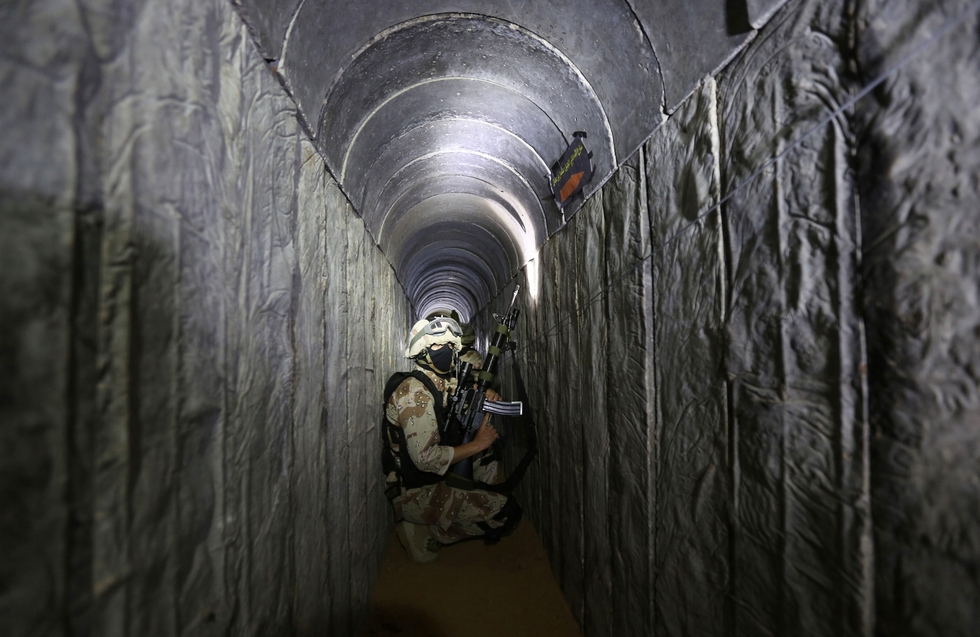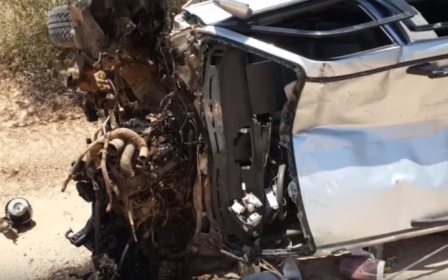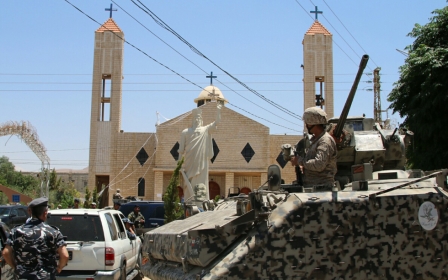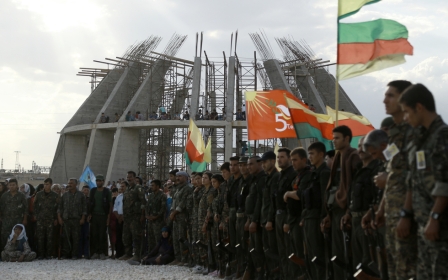US-backed rebels in Syria seize huge cache of IS documents

US-backed Syrian fighters battling the Islamic State (IS) group captured thousands of its documents, cellphones and other digital devices, a Pentagon official said on Wednesday.
The seizure came on Wednesday as an anti-IS force of Kurdish and Syrian Arab fighters honed in on the northern city of Manbij, an important waypoint between the Turkish border and Raqqa, the militants' de facto capital.
Colonel Chris Garver, a spokesman for the US-led anti-IS campaign, said Syrian Arab fighters were establishing "footholds" on the southern and western edges of Manbij, and had seized entrances to an intricate tunnel complex built by the militants.
They "also seized more than 10,000 documents from the outlying edges, including textbooks, propaganda posters, cellphones, laptops, maps and digital storage devices," Garver told reporters.
"Exploitation of this information is ongoing to better understand Daesh networks and techniques, including the systems to manage the flow of foreign fighters into Syria and Iraq," he added, using an Arabic abbreviation for the IS group.
Pentagon officials often highlight the value of such information, which can improve their grasp of the IS network and lead to new targets.
Separately, in the southeastern corner of Syria, a group of US-trained rebels called the New Syrian Army on Wednesday battled for control of territory near the Albu Kamal border crossing with Iraq.
Their goal was to cut IS supply lines in the Euphrates Valley between Syria and Iraq.
The Syrian Observatory for Human Rights said the rebels had seized the small al-Hamdan airbase nearby, but by Wednesday afternoon IS had recaptured it, forcing the rebels to retreat.
Garver did not provide additional details about the ongoing fight but stressed the value of the border crossing.
"That fight is important because that's going to help slow down the flow of foreign fighters ... from Iraq to Syria and back," he said.
The Pentagon claims the numbers of foreign fighters coming into Iraq and Syria have dropped from about 2,000 a month last year to as few as 200 a month this year.
"You don't see the massive amounts of movement. It's certainly been whittled down in its size," Garver said.
IS seized the Albu Kamal crossing in mid-2014, when it overran swaths of territory on both sides of the border and declared a self-styled "caliphate".
In Iraq, Garver said attention is now shifting from Fallujah, which Iraqi security forces last week recaptured from IS, to the militants' main stronghold in the country, Mosul.
Coalition air strikes have destroyed IS's "self-proclaimed ministry of oil headquarters" in Mosul and continue to hit targets in the city, Garver said.
New MEE newsletter: Jerusalem Dispatch
Sign up to get the latest insights and analysis on Israel-Palestine, alongside Turkey Unpacked and other MEE newsletters
Middle East Eye delivers independent and unrivalled coverage and analysis of the Middle East, North Africa and beyond. To learn more about republishing this content and the associated fees, please fill out this form. More about MEE can be found here.




